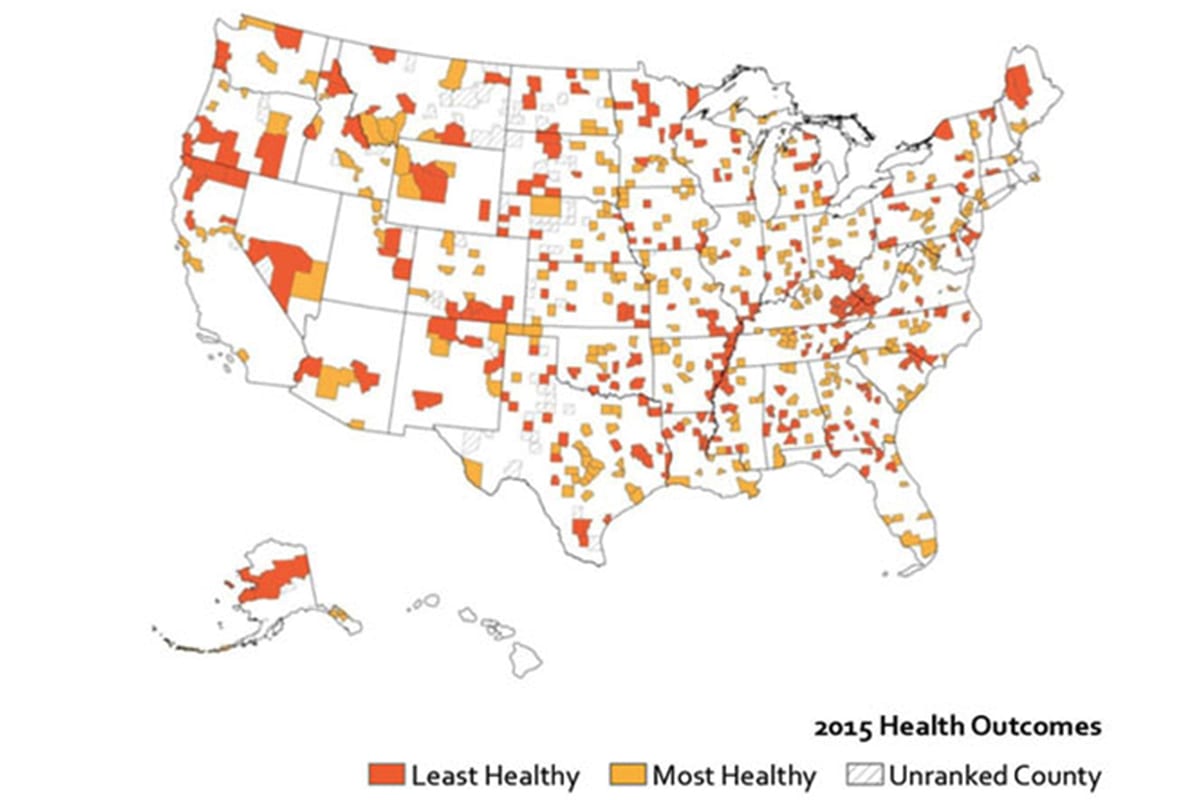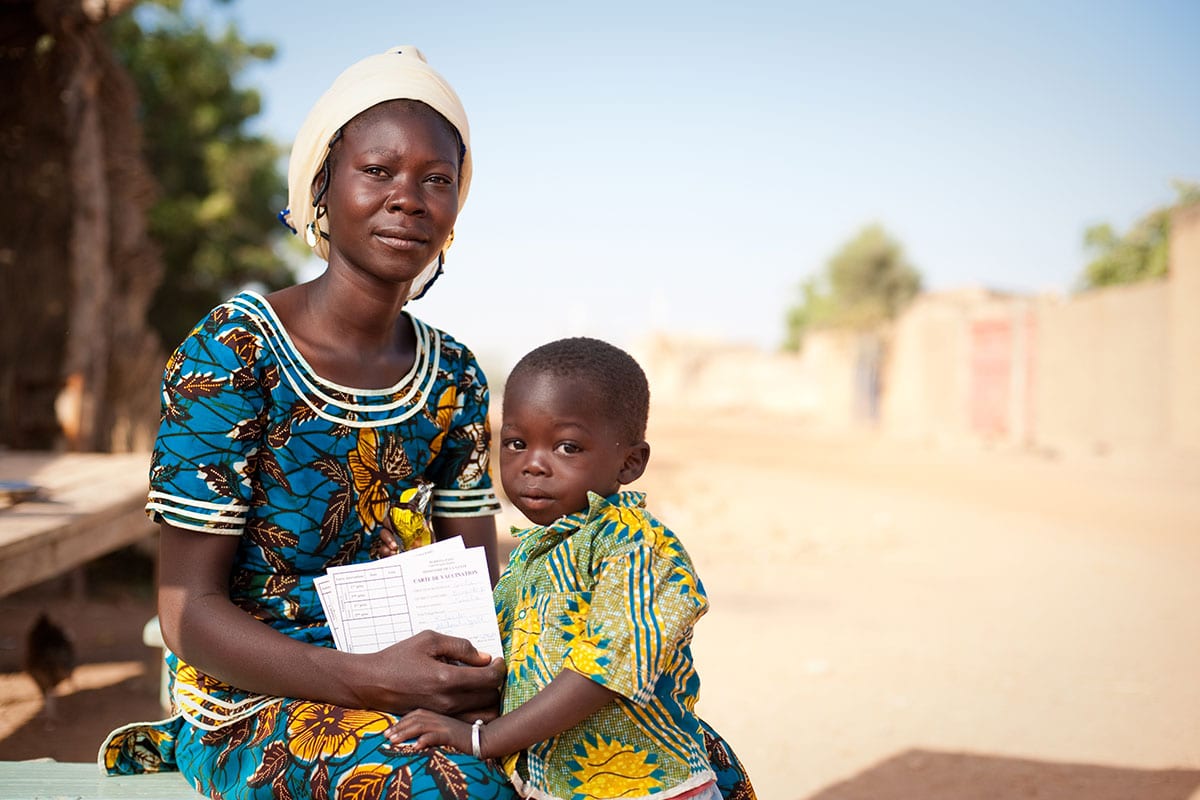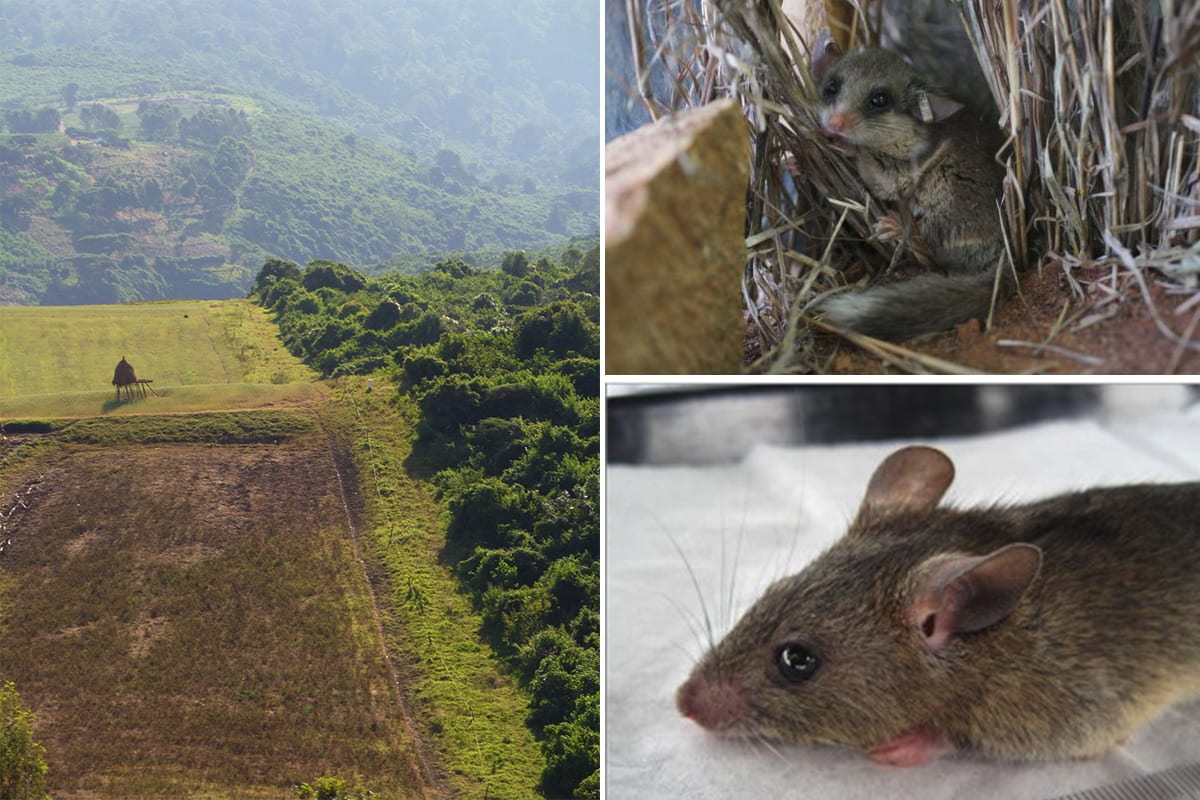Media Relations Posts
Where You Live Matters to Your Health

The Robert Wood Johnson Foundation and the University of Wisconsin’s Population Health Institute released the 2015 County Health Rankings, which shows that where you live influences how well and how long you live. It compares 30 factors that communities have the ability to do something about – including education, jobs, violent crime, housing, diet and exercise.
New Discovery Saves Seven-Layer Bean Dip from Extinction

The future was looking bleak for common beans, a nutrition-packed protein source that includes everything from navies to pink speckled kidneys. Climate models project that the heat-sensitive crop—enjoyed by billions, but depended on by 400 million in Latin America and Africa for their daily protein—will falter if global temperatures rise.
Developing New TB Drugs Shouldn’t Be a Moonshot

Tuberculosis kills 1.5 million people every year. It is such a lethal disease that it requires patients to take a combination of four strong antibiotics for six months—18 months or more if the infection comes from a drug-resistant strain. The drugs involved in TB treatment are old, developed when Kennedy was president of the U.S.
Conversations in Development: Vaccines–A Matter of Justice

For me, Dr. Marc LaForce is a hero. The founder and former director of the Meningitis Vaccine Project (MVP), a partnership between PATH and the World Health Organization (WHO), Dr. LaForce is the mastermind behind developing the world’s first vaccine especially for Africa, one that comes in at a price of around 50 cents a dose.
The “Less Happy” Story: Malaria Increases in Uganda

While malaria cases are declining globally, they remain high and on the increase in rural Uganda, suggesting that more aggressive methods of controlling the disease in high-transmission areas of sub-Saharan Africa are urgently needed.
Your Italian Leather Shoes Are Killing the Rainforest

Could your Italian leather shoes be to blame for deforestation in the Amazon? The answer is yes. A new report found that stretches of forest the size of a football (soccer) field were illegally cleared every 120 seconds between 2000 and 2012 to supply consumers in Europe with palm oil, beef, soy and leather.
New President: Hope for Indonesia’s Besieged Indigenous Peoples?

Imagine living in a world where your home could at any time become a national park, or a giant plantation—and you have no say. And if you should stand up to this injustice, you’d likely go to jail. This is the reality of many of the forest peoples of the archipelago of Indonesia.
Seed Index Sprouts New Hope for Farmers

What does seed mean for farmers? It represents the chance to feed a family and have a surplus to send children to school, buy uniforms, and buy medicine when they’re sick. And yet, farmers in many parts of Africa do not have access to the kinds of seeds that could thrive on the land.
Expanding Farmlands Create Perfect Storm for Plague in East Africa

A new study published in the American Journal of Tropical Medicine and Hygiene found the push to boost food production that is accelerating the conversion of natural lands into croplands in Tanzania may be significantly increasing the risk of plague. Researchers discovered that where maize production has been introduced, the number of rodents infested with plague-carrying fleas that can cause human infections nearly doubled compared to numbers in neighboring forest areas.
Consumers Save by Shopping for Health Care

The Health Care Cost Institute is launching, Guroo.com, a website that provides national, state, and local information free to consumers to help them shop and make more informed choices about how they spend their health care dollars.
